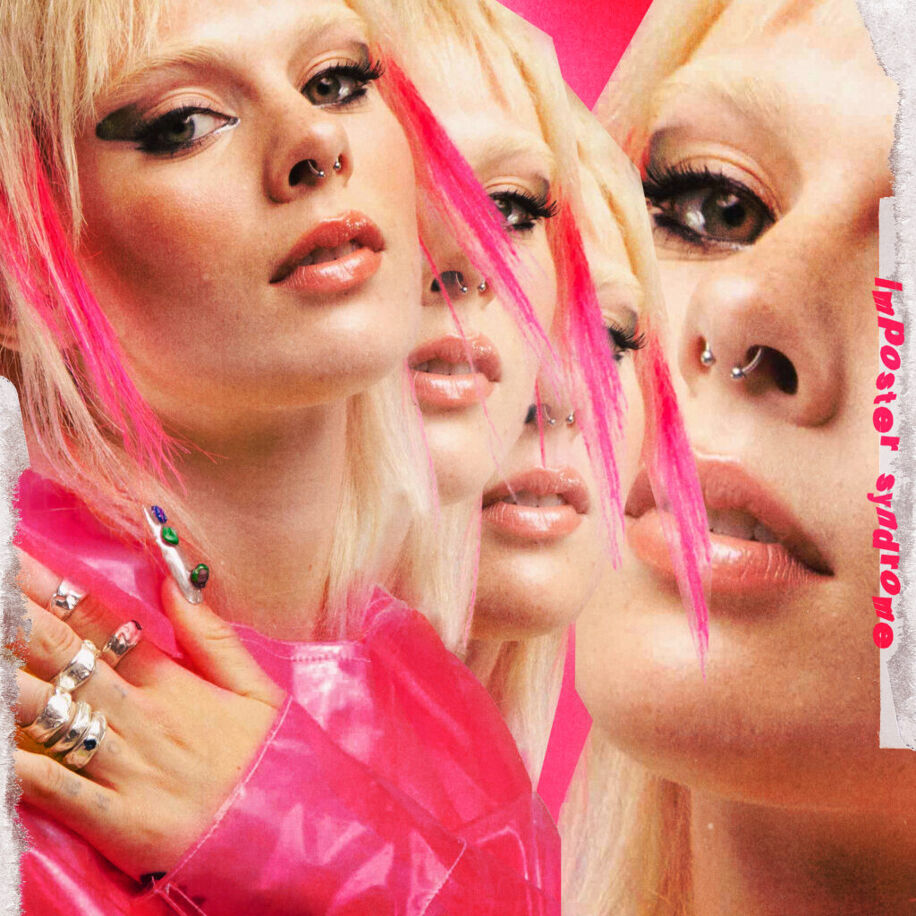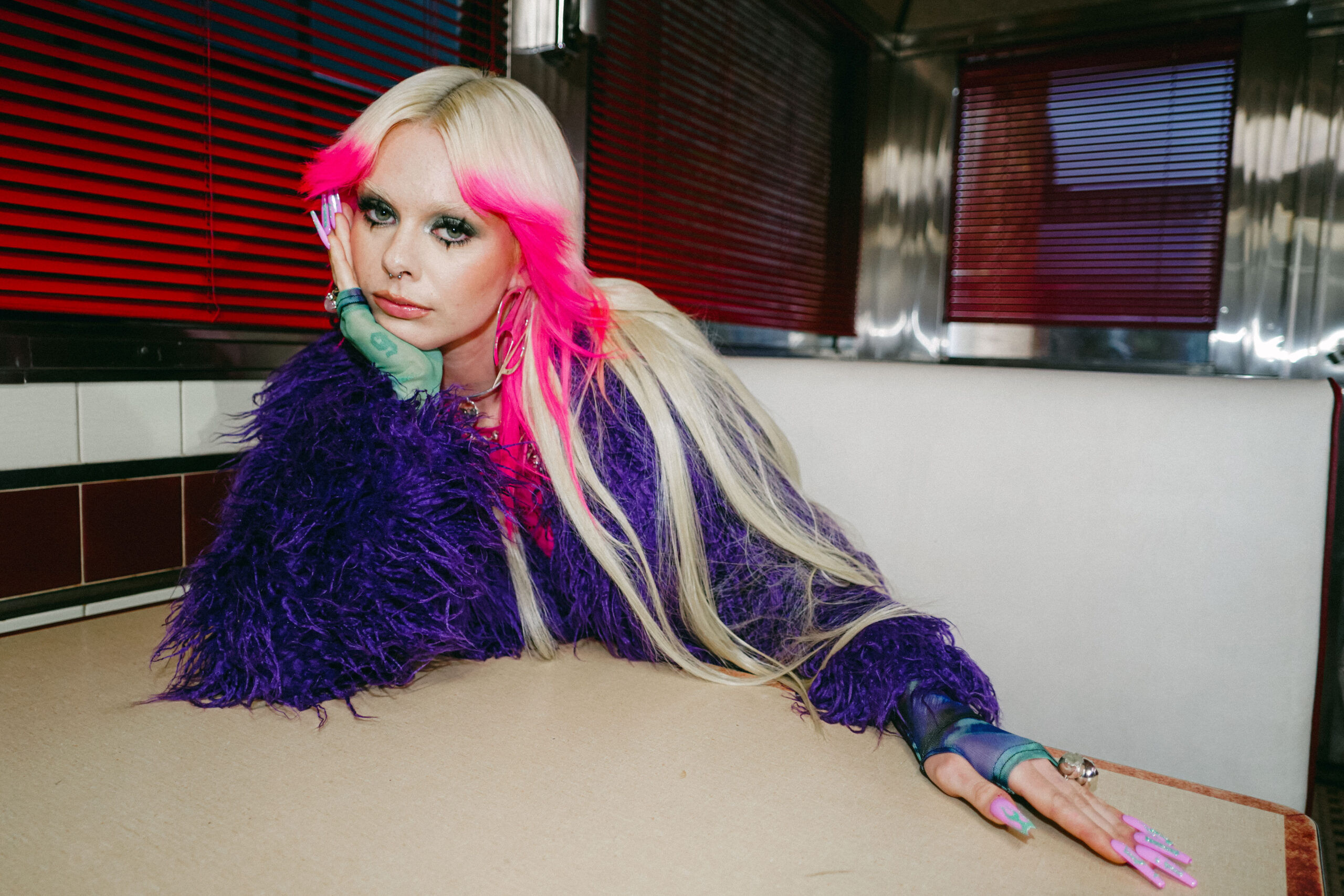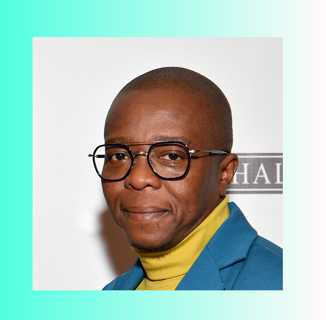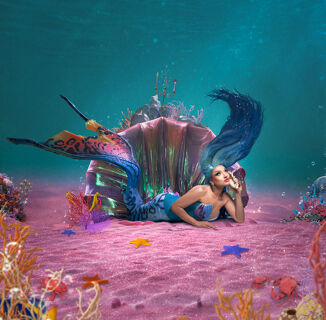Hyperpop? Grunge? Indie rock? Why should she have to choose? So asks girli, a 25-year-old artist breaking down binaries with her signature genre-bending sound.
Since debuting at age 17, the London-based singer-songwriter has experienced the ups and downs of the music industry. After having her tour canceled in 2020 due to the pandemic, girli took the time off to craft a persona steeped in feminine power, complete with hot pink bangs and a technicolor wardrobe.
Now, girli is back with the release of her latest singles, “Imposter Syndrome” and “I Really F**ked It Up,” and ushering in a new era with her current tour, which features her debut headline shows in the U.S. before she returns to Europe. INTO sat down with girli to talk the meaning behind her latest single, what queer representation looks like in modern music, and the beauty of vomiting her brain onto the page.
Hi, girli! First, let’s talk “Imposter Syndrome.” What’s the story behind the song?
“Imposter Syndrome” came from being in a bad place mentally. I’m always very open in my songs and open with my fans that I do struggle with mental health issues, and I have all my life. It’s quite therapeutic for me, to write about those things. I wrote a song about impostor syndrome because it’s something I have struggled with for years — that feeling that I’m not good enough and that I don’t deserve good things.
It’s a super relatable feeling. What are your usual sources of inspiration when it comes to songwriting?
Definitely mental health. A lot of the recent music that I’ve been releasing and writing stems from that, and stems from the search for trying to figure out my own mind and my own brain and being frustrated at my thoughts.
A big thing is identity, too, and trying to figure that out and being in my 20s. It’s that feeling of like, “What the fuck am I doing? Who am I? I’m so lost. Every day is just a whole nother adventure slash terrifying roller coaster.” For me, writing songs is a way to try and navigate that.

You’re also openly queer and often write about queerness in your songs. What does queer representation look like in your music?
Pronouns are a big thing, just because I remember when I first started releasing music, I was so scared to use pronouns other than what was expected, like, “he/him” when talking about love interests. Something that I’ve become really headstrong about is, when I’m writing, it’s like, I’m not going to change this narrative to be heteronormative.
For me, a lot of the songs I’m writing are about my own queer relationships, queer sex, things that I suppose not too long ago were — and maybe still are — a little bit taboo in terms of mainstream music and culture. It just boils down to, “I’m going to tell my story, exactly how it is.” A big thing as well that I’m trying to do now is write more queer heartbreak songs. Because queer people go through breakups, too! And it’s amazing to see so many LGBTQ+ artists now coming through and just writing from their own experiences, because that’s the key to representation.
Every lyric that I write is 100% real. It’s just brain vomit onto the page, into the song. I talk about real things that I experience, and a lot of those things are difficult: mental health issues, heartbreak, being a queer woman in a patriarchal world.
girli
100%. Let’s talk about the music video for “Imposter Syndrome,” which was directed by Kassandra Powell. It’s super surreal and otherworldly. What was the inspiration?
I wanted the music video to take you to this house-of-horrors, scary other world that represents the inside of my mind when I’m having all these paranoid impostor syndrome [thoughts]. It takes place in a weird diner with all of these weird characters, and they all represent how I view the world, how I view other people seeing me, and they’re all laughing at me and talking about me and saying I’m a fake. We tried to get loads of subliminal messaging everywhere. Like, “Fake” is written on a can, and “Fraud” is written in ketchup on the plate.
My favorite part of the video is this mob, these protesters, and that’s meant to represent my imagined haters. Most of the people in that mob were actual fans of mine who won a competition to be in the music video. And that was fun, because they were like, “We love your music!” And then it was like, “OK, action,” and they had to shout like, “Fuck you! We hate you!”
Speaking of connecting with fans, you’re about to do your first ever headline shows in the U.S.! What are you most excited for?
I’m just so excited to meet and connect with U.S. pinkies! “Pinkies” is what I call my fans. I’ve been connecting online with U.S. fans for so long and I’ve been having people say, “Come to the U.S.! Play shows here, please!” And I’m like, “I’m working on it, I’m working on it!” And it was just never the right time. So finally, I’m doing it, and I’m so excited.
I’m excited for you! Finally, what do you hope people take away from your music?
I hope that they feel like, “Wow, this girl gets me. This girl gets what’s going on in my head, and I feel less alone because I listened to the songs.” That, for me, is all I want. That’s the reason I make music.
Every lyric that I write is 100% real. It’s just brain vomit onto the page, into the song. I talk about real things that I experience, and a lot of those things are difficult: mental health issues, heartbreak, being a queer woman in a patriarchal world. I just hope that people will listen to my songs and be like, “Oh, yeah, that fucking stings because I relate to that. It’s painful, but also, it makes me feel less alone.”
“Imposter Syndrome” is now streaming on all platforms, and tickets for the “F**ked It Up” Tour are on sale now.
This interview has been edited and condensed for length and clarity.
Don't forget to share:
Help make sure LGBTQ+ stories are being told...
We can't rely on mainstream media to tell our stories. That's why we don't lock our articles behind a paywall. Will you support our mission with a contribution today?
Cancel anytime · Proudly LGBTQ+ owned and operated
Read More in The INTO Interview
The Latest on INTO
Subscribe to get a twice-weekly dose of queer news, updates, and insights from the INTO team.
in Your Inbox













